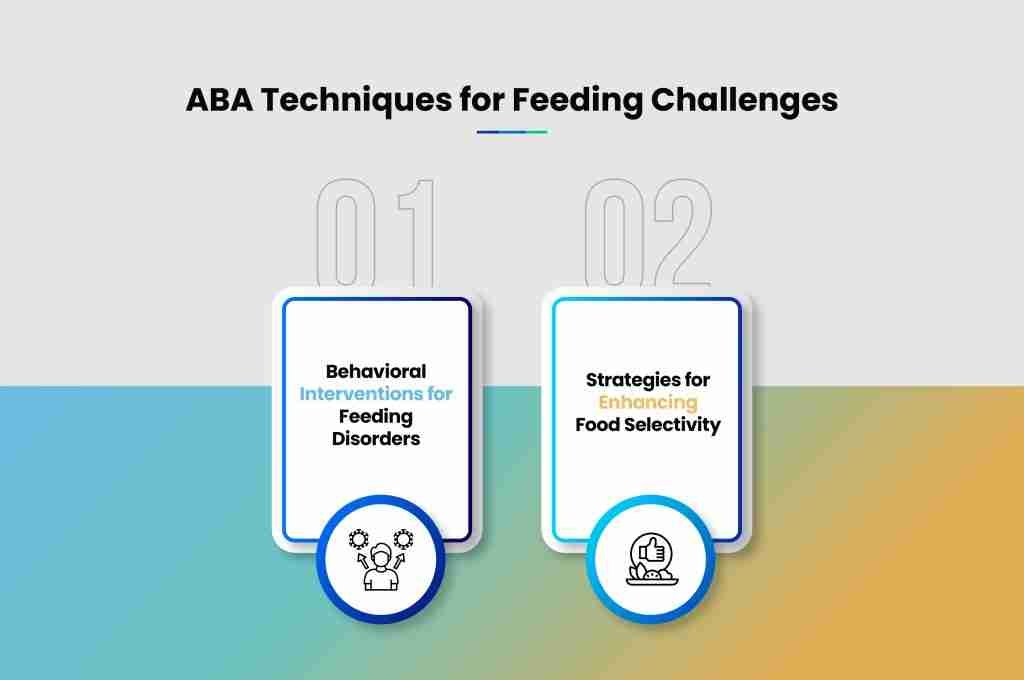Conquering Feeding Hurdles: ABAs Crucial Role in Autism Treatment
ABA TherapyJuly 17, 2025

Understanding ABA Therapy
When it comes to ABA therapy, two things really stand out as game-changers for making it work: sticking to ethical guidelines and using practices backed by solid evidence.
Ethical Considerations in ABA
In ABA therapy, doing the right thing, or ethical considerations, is the name of the game. Making sure to get informed consent sets the stage for good vibes between the therapists, clients, and their folks. This teamwork builds the bedrock of treatment success. Rules like HIPAA and those from the Behavior Analyst Certification Board (BACB) are like bodyguards for clients—keeping their rights on lock and their privacy under wraps.
Sticking to ethical rules is a big deal in ABA therapy. It's like a safety net for clients, making sure they're treated with the utmost care and respect, and that their families don't feel left in the dark.
Evidence-Based Practice in ABA
ABA therapy doesn't just play it by ear—it’s grounded in evidence-based practices (EBPs). This mix of top-notch scientific evidence, therapist know-how, and what the client values makes sure the treatment is no shot in the dark. In many states, insurance coverage for ABA speaks volumes about its standing as the go-to treatment for autism.
With nods from the big wigs like the US Surgeon General and the American Psychological Association, ABA therapy has become a staple in helping folks with autism. The use of positive reinforcement is like cheering on the desirable behaviors to make them a regular scene.
When ethical rules mesh with evidence-backed practices, ABA therapy rolls out the red carpet of support for individuals with autism, promising them a brighter tomorrow with tailor-made tackling of their hurdles.
Importance of ABA in Feeding Disorders
When it comes to helping folks with autism, especially with eating troubles, Applied Behavior Analysis (ABA) is about as handy as a trusty Swiss Army knife. Getting to know just how common these munching mishaps are in the autism world is key to crafting useful ABA plans.
Prevalence of Feeding Issues in Autism
Feeding problems hit kids with autism surprisingly hard. About 80-90% of them deal with it, which is a ton more than kids without autism. It's like getting caught in a rainstorm while others are just seeing a drizzle. These issues are no small potatoes and show how much tougher it can be for kids with autism to eat right. According to researchers (Gold Star Rehab), a whopping 90% of those on the spectrum experience these hurdles. They don't just mess with how they eat, but also stir up troubles in how they feel overall and handle everyday life.
Impact of Feeding Disorders
The fallout from feeding woes stretches way beyond just having an empty belly. For kiddos with autism, it might mean dropping pounds, missing out on growing up strong, or simply not getting enough good stuff from their food (Kennedy Krieger). These often picky eating habits can stall their growth train, leading to some not-so-happy long-term health tickets.
Plus, these eating escapades can crank up the worry dial on parents and mess with family vibes. Juggling a kid's food needs can get intense, leaving everyone a bit frazzled, even after professionals step in (Gold Star Rehab). That's why finding strong solutions not only helps the child but also eases the caregiver's load.
So, digging into the heart of feeding disorders shows why ABA is such big news. It's about picking the right ABA tricks to help autistic people chow down better and have a happier, healthier life.
ABA Techniques for Feeding Challenges

Feeding difficulties in kids with autism? Well, ABA, or Applied Behavior Analysis, is here with an arsenal of tricks that zero in on tweaking behavior and rewarding progress. This means that caregivers and experts alike can aid kiddos in broadening their palates and building better eating habits.
Behavioral Interventions for Feeding Disorders
Turns out, ABA know-how is worth its weight in gold when it comes to fitting nutritional fixes for children with autism. By cutting down on fuss and upping the good stuff, ABA-backed strategies shine in resolving these eating conundrums (NCBI). For instance, a combo of rewarding new behaviors, insisting the fork stays put, and slowly introducing new foods has worked wonders in getting kids open to munching on previously snubbed snacks.
Sharp and Jaquess (2009) hit the nail on the head with escape extinction, doling out beloved items non-stop, and easing in complex textures. These steady tricks have helped tackle picky eating, getting little ones to enjoy a fuller menu with gusto (NCBI).
Strategies for Enhancing Food Selectivity
Battling kids’ choosiness with food? ABA is all about peeling back the layers of their tiny taste buds with gentle nudges toward unfamiliar munchies. Rewards, praise, and a bit of gentle bribery can entice those taste-testers to explore new edibles, making the food journey more adventurous.
ABA’s feeding plans turn mom and dad into food champions at home. The programs, run by Board Certified Behavior Analysts (BCBAs), teach grown-ups to wield techniques like celebrating small wins, using the Premack principle, token economies, and task breakdowns. Armed with ABA smarts, parents can help fix feeding foibles, making sure mealtime is a treat rather than a trial (Empower Behavioral Health).
Putting these ABA tactics to work on feeding fiascos can change a child's dining destiny, taking them from picky to plenty in the eating department. The tailored nature of ABA means every kid's quirks are met with a tailored plan, giving them a real shot at healthier habits and happier meal times.
Implementing ABA Strategies
When it comes to feeding challenges faced by kids with autism, Applied Behavior Analysis (ABA) is like the secret sauce for making mealtimes smoother. Using ABA in feeding therapy isn't just about getting kids to eat their greens; it also gives parents the know-how to tackle these challenges at home. So, buckle up as we dig into the nitty-gritty of putting ABA strategies into action: ABA Feeding Therapy Programs and the indispensable role of Getting Parents Involved in ABA Feeding Therapy.
ABA Feeding Therapy Programs
ABA feeding programs are a custom fit for dealing with feeding issues in kids with autism spectrum disorder. These programs are led by the pros—the Board Certified Behavior Analysts (BCBAs)—who use a bag of tricks based on solid research to improve how kids choose and handle their food. According to Empower Behavioral Health, these programs often weave in strategies like:
- Positive Reinforcement: Giving rewards for good eating, which makes it more likely they'll chow down the right way again.
- Premack Principle: Taking favorite activities and turning them into "carrots" to try out new foods.
- Token Economy Strategies: Handing out tokens that can be swapped for a fun treat or fave activity, all to encourage better eating.
- Task Analysis: Breaking those tricky eating behaviors into bite-sized tasks so they’re easier to tackle.
These strategies aim to tackle feeding problems head-on, improve how kids eat, and make mealtimes a bit more pleasant for everyone involved.
Involving Parents in ABA Feeding Therapy
Teamwork with parents is at the heart of winning at ABA feeding therapy. Parents aren't just spectators; they're in the game, applying therapy strategies at home to keep the momentum going. As noted by Empower Behavioral Health, involving parents means:
- Embedding Feeding Strategies at Home: Parents slide these strategies from therapy right into their home routines.
- Promoting Sustainable Habits: With consistency, parents help their kids stick to healthy eating for the long haul.
- Customizing for Each Child: Parents and BCBAs huddle up to craft feeding plans that are just right for their child’s quirks and likes.
By getting parents in on the act, children with autism get the support they need not just in therapy rooms but everywhere they eat. This team-focused approach aims not just for short-term wins but for lasting change in how kids eat, boosting their overall health and nutrition in the process.
Learn More: ABA Approaches to Managing OCD in Autism
